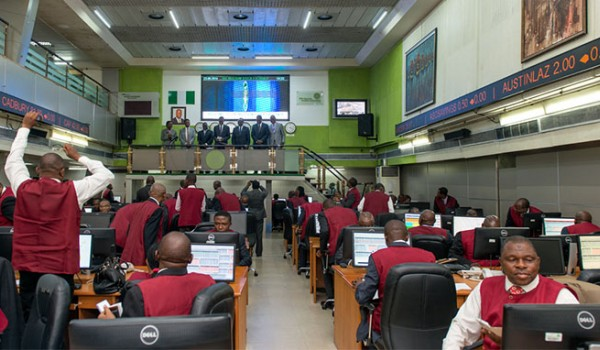The electoral body made this revelation on Thursday afternoon in a post on its official X (formerly Twitter) handle. ArticlesRead More
Death of Traditional Workplace: What the Future Holds for Organisations
Death of Traditional Workplace: What the Future Holds for Organisations
By Anthony Abodunrin Oni
The workplace is shifting seismically, and the traditional office model is rapidly becoming outdated. Digital transformation, remote work, and AI-driven automation have reshaped how organizations function, recruit, and engage with workers. It’s not a trend that’s going away; it’s a redefinition of what work is all about.
For decades, the traditional workplace was built on rigid frameworks, centralized systems, and a rigid nine-to-five day. Office buildings were seen as the epicenter of productivity, collaboration, and corporate culture. All that has changed with the rapid pace of technology, along with changing employees’ expectations. The idea that work must be confined to a physical space is quickly becoming a relic of the past.
The technological revolution ushered in by the digital age has experienced unprecedented technology breakthroughs, where one can do work anywhere. Cloud technology, AI, and automation have simplified the automation of tasks, reducing the requirement for offices. Businesses are now applying digital communication tools such as Slack, Microsoft Teams, and Zoom to ensure that communication is seamless, regardless of location. The transformation has boosted efficiency in operations and saved businesses a lot of money, allowing them to channel funds into innovation and employee well-being.
The pandemic of COVID-19 accelerated the use of remote work, and it was demonstrated that productivity is location-independent. The majority of companies that had not adopted flexible work patterns were forced to do so overnight. Hybrid work patterns are becoming the new norm today, where employees can switch between office and remote work seamlessly. It has been observed through research that hybrid workplaces can enhance productivity, reduce stress, and improve job satisfaction.
The workforce of today, particularly millennials and Gen Z, prioritize flexibility, autonomy, and work-life balance over hierarchies in the corporation. The older generation liked job security and tenures in a single company, but employees nowadays seek meaningful work, career advancement, and the ability to work according to their own schedule. Organizations that ignore these evolving expectations will lose their best people to more progressive competitors.
Maintaining large office spaces is costly as well. Most companies are redirecting investment to technology, employee health, and sustainability initiatives rather than renting expensive office space. The exodus from traditional office space is not just an economic decision but a strategic one. Companies that invest in newer digital technologies and prioritize employee experience are likely to build more engagement and innovation.
Organizations will further take on a decentralized model where employees work from diverse locations around the world. The shift will drive the need for more advanced digital collaboration tools, cyber security measures, and inclusive policies that address varying types of working styles. Organizations will also have to rethink their recruitment plans as they are now not constrained by geography while recruiting the best talents.
Artificial intelligence is not replacing workers but transforming them. Repetitive work will be automated, and employees will be provided with the chance to focus on high-value, strategic, and innovative work. AI-powered software such as chatbots, predictive analytics, and machine learning software is enhancing decision-making and operational efficiency across all sectors. This also demands continuous learning and upskilling programs so that employees remain competitive in the evolving job market.
The future workplace will focus on employee well-being, engagement, and inclusion. Organizations will have tailored work experiences, including flexible work schedules, mental health services, and dynamic team structures. Forward-thinking organizations understand that a healthy and engaged workforce translates into higher productivity and retention. Organizations with wellness programs, mental health programs, and career development initiatives will attract and retain the best talent.
The old hierarchical corporate model is being overridden by agile, purpose-driven leadership. Organizations will shift to flatter, more collaborative forms with leadership defined by influence, not power. Decision-making will be more distributed, stimulating innovation and cross-functional working. Leaders must become flexible, emotionally intelligent, and digitally competent to survive in the future workplace complexities.
While old-fashioned offices are fading away, they will not be gone for good. Rather, they will be reinvented as co-working spaces that are designed for networking, team building, and idea creation rather than everyday showup. Office spaces will be reconfigured to create more energetic and creative settings that will foster innovation and connection building. Companies that effectively merge physical and virtual workplaces will become market leaders in the new world of business.
Companies that hold on to old workplace models risk being left behind. The future is for companies that are willing to digitalize, put people first, and become adaptable. The old workplace is dying, but rising from the ashes is a more flexible, diverse, and innovative workspace. The question for leaders today is not if but when they will be able to adapt to this irreversible transition. Individuals who take the time to reinvent their workplaces today are the ones that will succeed in the years ahead.
*Anthony Abodunrin Oni is an Organizational Development Consultant and E-Learning Specialist with expertise in business strategy, human resources, and digital transformation. A Fellow of the Chartered Institute of Human Resources Management, he has consulted for top organizations across various sectors, driving efficiency and growth.
By Anthony Abodunrin Oni The workplace is shifting seismically, and the traditional office model is rapidly becoming outdated. Digital transformation, remote work, and AI-driven automation have reshaped how organizations function,


